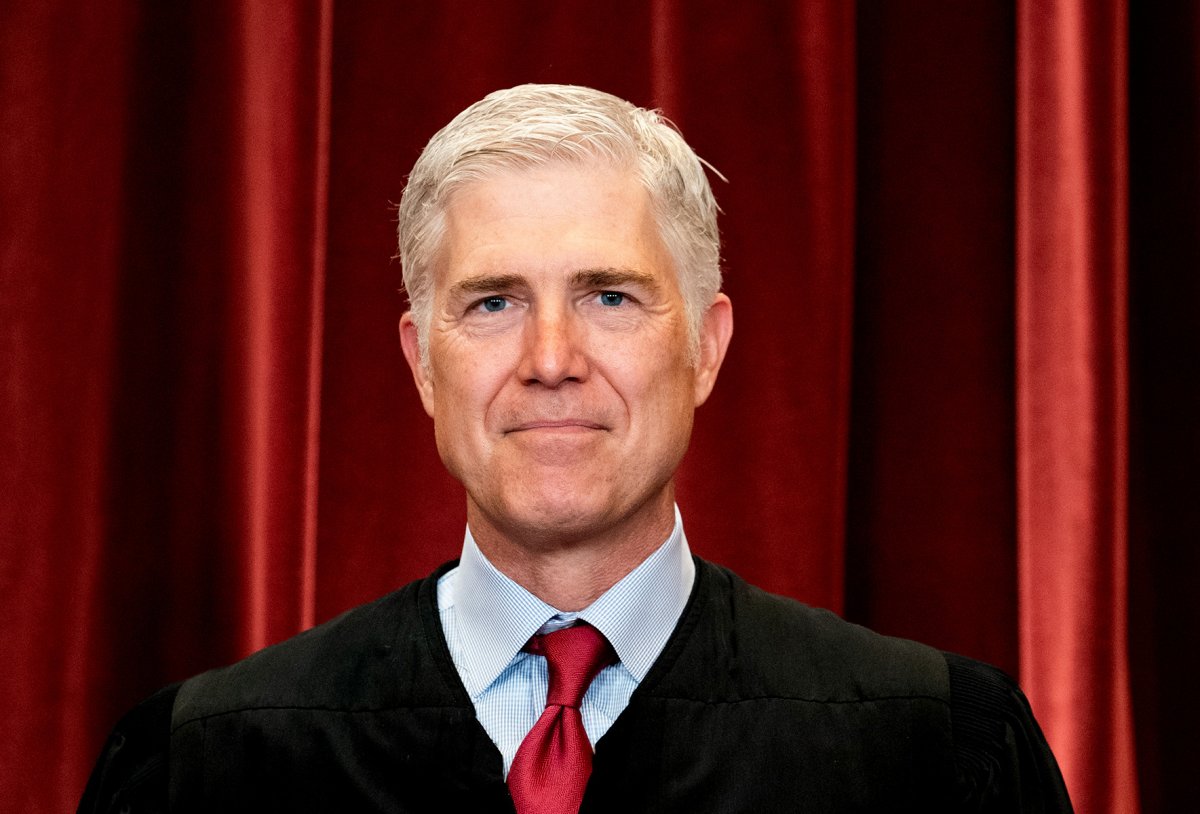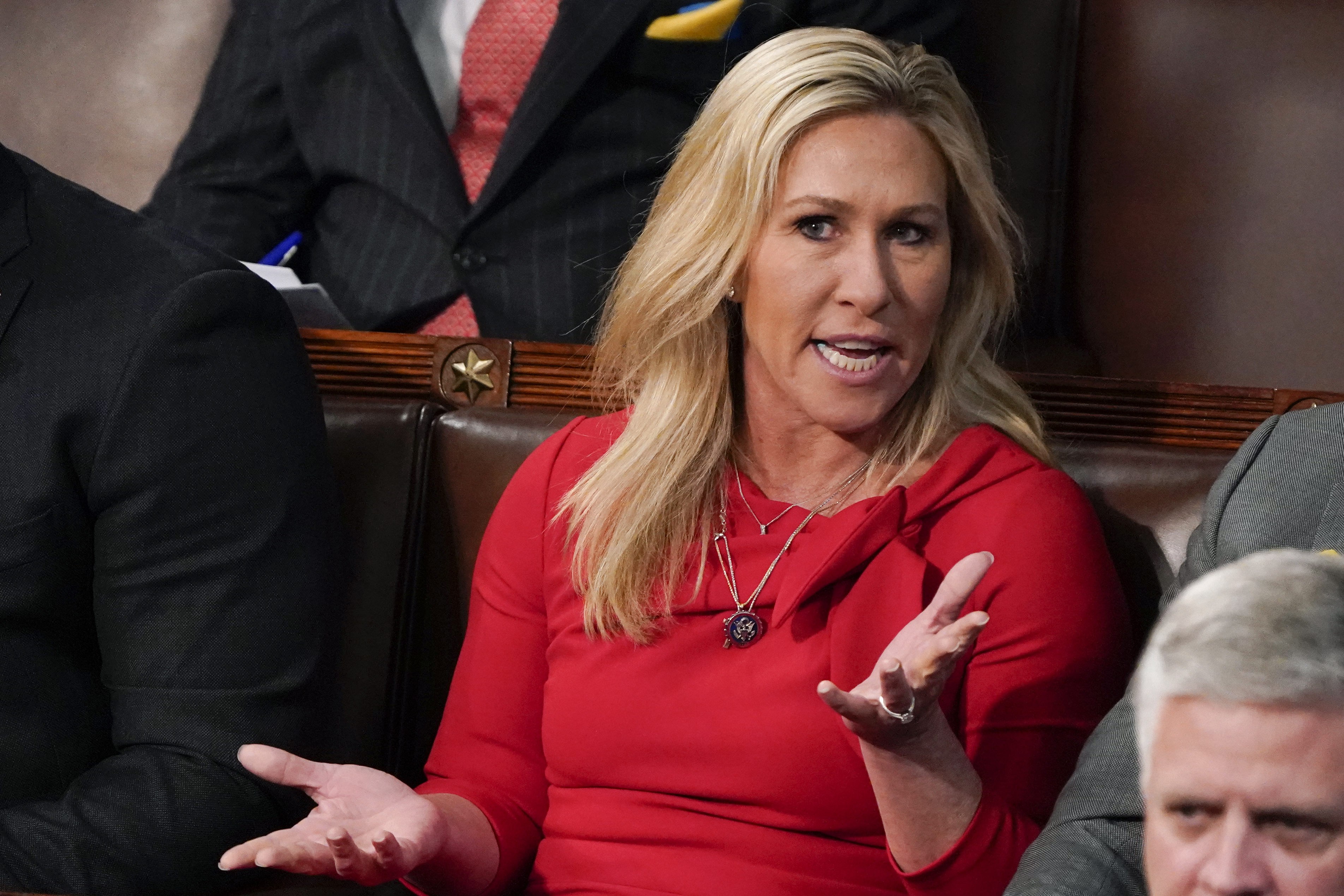Justice Neil Gorsuch's break with the rest of the Supreme Court bench has caught the attention of observers who see a pattern in his opinions on matters related to the rights of Native American tribes and their land.
In the first opinion of the day, the Supreme Court affirmed that individuals could still sue Native American tribes in bankruptcy disputes in an 8-1 vote. Gorsuch, a conservative justice on the bench, dissented, writing that "Tribes enjoy a unique status in our law."
In Lac du Flambeau Band of Lake Superior Chippewa Indians v. Coughlin, justices were asked to decide whether tribes are protected from the Bankruptcy Code under sovereign immunity. The court's opinion, penned by Justice Ketanji Brown Jackson, said that the code overrides the immunity of all government, "including federally recognized Indian tribes."
On Thursday, Gorsuch's dissent and his concurring opinion in another Native American-related case prompted some legal experts to note the justice's commitment to protecting Native American rights.
"Gorsuch is proving one of the most committed and consistent voices for Native American rights in the Court's history," legal scholar Jonathan Turley tweeted.
"Fair to say that Justice Gorsuch is the most consistent ally that Native American tribes have had on the Supreme Court in generations?" Aaron-Reichlin-Melnick, policy director at the American Immigration Council, asked.
Even when Gorsuch is in the majority opinion for cases involving Native American Rights, the justice "typically writes separate concurring opinions that articulate a stronger defense of Native American sovereignty than the majority opinion," Alex Badas, a political scientist focused on judicial politics, told Newsweek.

On Thursday, Gorsuch also joined the court's majority in upholding a 1978 law aimed at keeping Native American adoptees within their tribes. Justices Clarence Thomas and Samuel Alito, who are arguably the most conservative justices on the bench, dissented.
In the 7-2 vote, the court rejected the challenge brought by Haaland v. Brackeen, a case in which several couples who wished to adopt or foster native children argued that the Indian Child Welfare Act (ICWA) is unconstitutional.
In his concurring opinion, Gorsuch said that affirming the law "safeguards the ability of tribal members to raise their children free from interference by state authorities and other outside parties."
He noted that the law "did not emerge from a vacuum," recalling how there was a "mass removal" of Native American children from the families in the 1950s, 1960s and 1970s.
"No doubt, ICWA sharply limits the ability of States to impose their own family-law policies on tribal members. But as we have seen, state intrusions on tribal authority have been a recurring theme throughout American history," Gorsuch wrote.
Citing Gorsuch's concurring opinion, Mark Joseph Stern, a senior writer covering courts and the law for Slate Magazine, called the justice "the strongest and most consistent ally of Native American tribes ever to sit on the Supreme Court."
Gorsuch has often dissented with his fellow conservative Supreme Court justices over tribal rights, choosing to side with his liberal colleagues on cases like Washington State Department of Licensing v. Cougar Den, Inc., Herrera v. Wyoming and McGirt v. Oklahoma.
Even before he joined the bench, his appointment to the court was supported by various tribes and a number of Native American organizations, who pointed to Gorsuch's rulings as a judge on the 10th U.S. Circuit Court of Appeals, where he consistently ruled in favor of tribe rights.
"Most cases involving Native American tribes will be heard by the 10th Circuit on Appeal," Badas said. "This likely gives him more insight to the issues Native American tribes face relative to the other Justices—none of which have previously served on the 10th Circuit and have heard limited number of cases involving Native Americans during their career.
"By hearing these cases, he may have developed an especial sense of empathy with the issues these Native American groups face," he added.
In a 2018 letter to Senate leadership, Alvin Not Afraid Jr., chairman of the Crow Tribe Executive Branch, said Gorsuch's judicial record shows "he has consistently demonstrated not only a sound understanding of Federal Indian Law principles, but a respect for our unique and closely held cultural values."
Mark Azure, president of the Fort Belknap Indian Community Council, also supported Gorsuch's SCOTUS appointment, writing to senators at the time that, "[W]hile we do not expect that Judge Gorsuch will agree with tribal interests on every issue, we also believe that he is immensely well qualified and we are confident that Judge Gorsuch is a mainstream, commonsense Westerner who will rule fairly on Indian country matters."
Uncommon Knowledge
Newsweek is committed to challenging conventional wisdom and finding connections in the search for common ground.
Newsweek is committed to challenging conventional wisdom and finding connections in the search for common ground.
About the writer
Katherine Fung is a Newsweek reporter based in New York City. Her focus is reporting on U.S. and world politics. ... Read more
To read how Newsweek uses AI as a newsroom tool, Click here.








